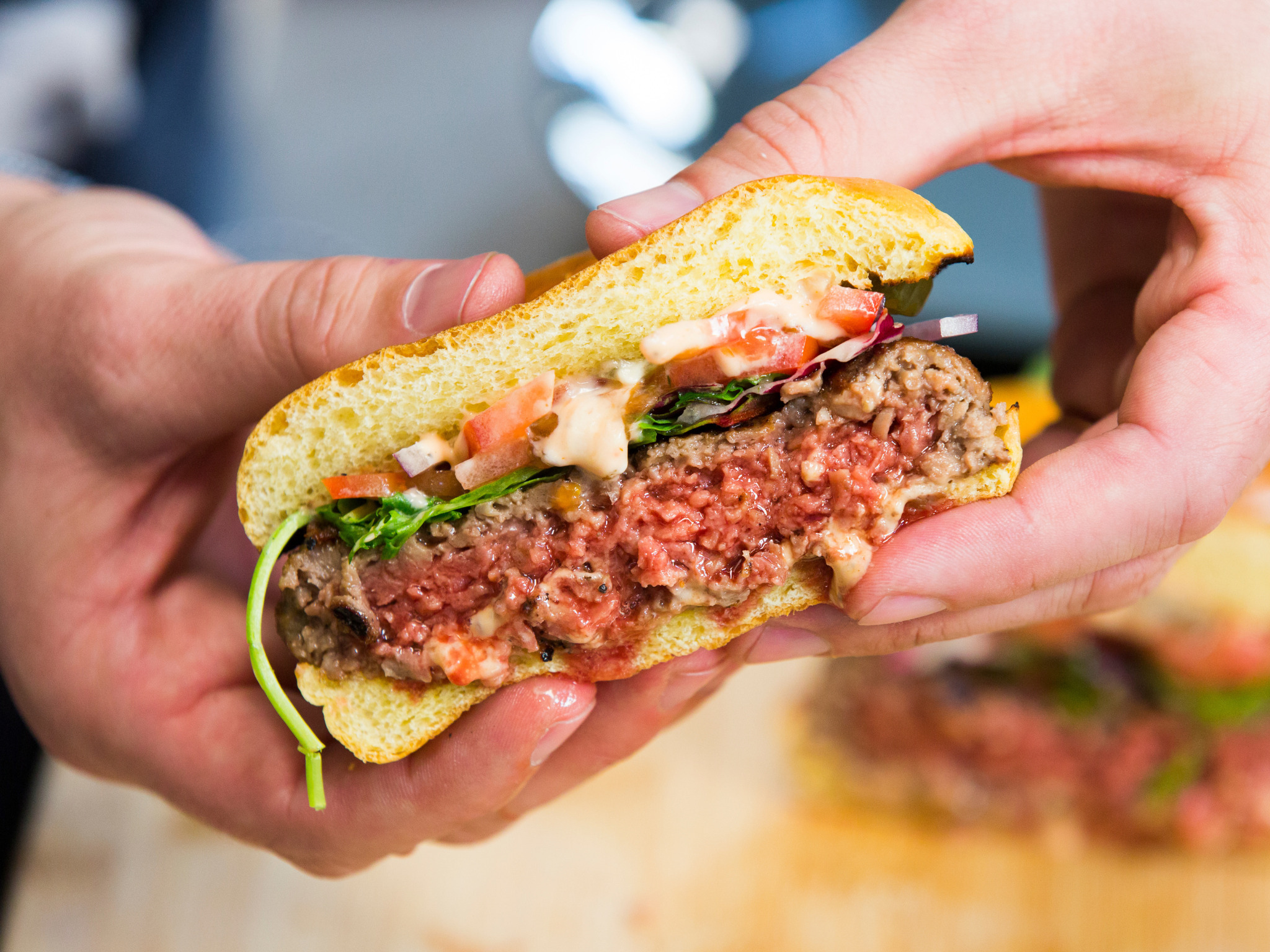Methylcellulose: What Is It, Why It’s Used in Plant-Based Meat, and Startups Making Alternatives
7 Mins Read
As the meat industry continues to knock the long ingredient lists of certain plant-based meat alternatives, one element pops up more often in the discourse: methylcellulose. But what is this substance, and is it really unhealthy? Here’s why plant-based meat companies use it, and a few alternatives.
In 2020, the Center for Consumer Freedom – a lobby group connected to the meat industry – ran a Super Bowl ad that acted as a blatant attack on plant-based meat. The 30-second spot featured kids in a Spelling Bee competition participants struggling to pronounce complicated words that are ingredients used in alt-meat.
It began with methylcellulose, which confounded the contestant, who asked for its meaning. The judge described it as a “chemical laxative that is also used in synthetic meat”. The child asked: “Why?” and walked back, and the commercial concluded: “If you can’t spell it or pronounce it, maybe you shouldn’t be eating it.”
The ad was a direct attack on plant-based meat’s two giants: Beyond Meat and Impossible Foods, both of which use methylcellulose in some of their products. In response to the ad, Impossible countered with a spoof, where a child is confused after being asked to spell “poop”. The judge explains how there’s “lots of poop in the places where pigs and chickens are chopped to pieces to make meat”, and a voiceover highlights research that found 300 samples of ground beef to contain “faecal bacteria”. Impossible’s ad ends with: “Just because a kid can spell ‘poop’, doesn’t mean you or your kids should be eating it.”
The use of ingredients like methylcellulose is a major point of contention for plant-based meats – but what is it, and should we really not be eating it?
What is methylcellulose, and why is it used in plant-based meat?
Methylcellulose (known as E461 in its E number in the EU) is a compound derived from cellulose – a naturally occurring substance found in the cells of plants like root and leafy vegetables, fruits such as apples and pairs, as well as legumes. Unlike cellulose, however, methylcellulose is synthetically produced.
A commonly used substance in multiple industries – including food, household products and construction materials – it’s made by heating cellulose and treating it with methyl chloride, which is turned into an odourless white powder.
Many plant-based meat manufacturers use methylcellulose for its binding and gelling properties, which aid the texture that’s crucial to consumers. The substance isn’t toxic or an allergen, can dissolve in cold water, and form a gel at high temperatures. And as a gel, it has a unique thermoreversible attribute: methylcellulose can set when hot and melt when cold.
This is crucial for plant-based meat, which can be held together during the cooking process thanks to its gelling properties, and provide a succulent, juicy bite to these products once cooked. These properties make it a hard-to-replace substance.
Singapore-based meat alternatives brand TiNDLE Foods, which has a global presence, says methylcellulose (along with coconut oil and oats) helps keep its plant-based meat together. On its website, it explains: “Think of it as a plant-based egg white.”
In that vein, it’s also notable that methylcellulose is used in breads, cookies, cakes and other baked goods too, especially in gluten-free applications. And it’s not just plant-based meat: ironically, the ingredient can also be used as a binder or extender in particulate meat and poultry products (often meat by-products liks sausage links), which make the animal livestock industry’s attacks all the more curious.
Is methylcellulose safe and healthy?
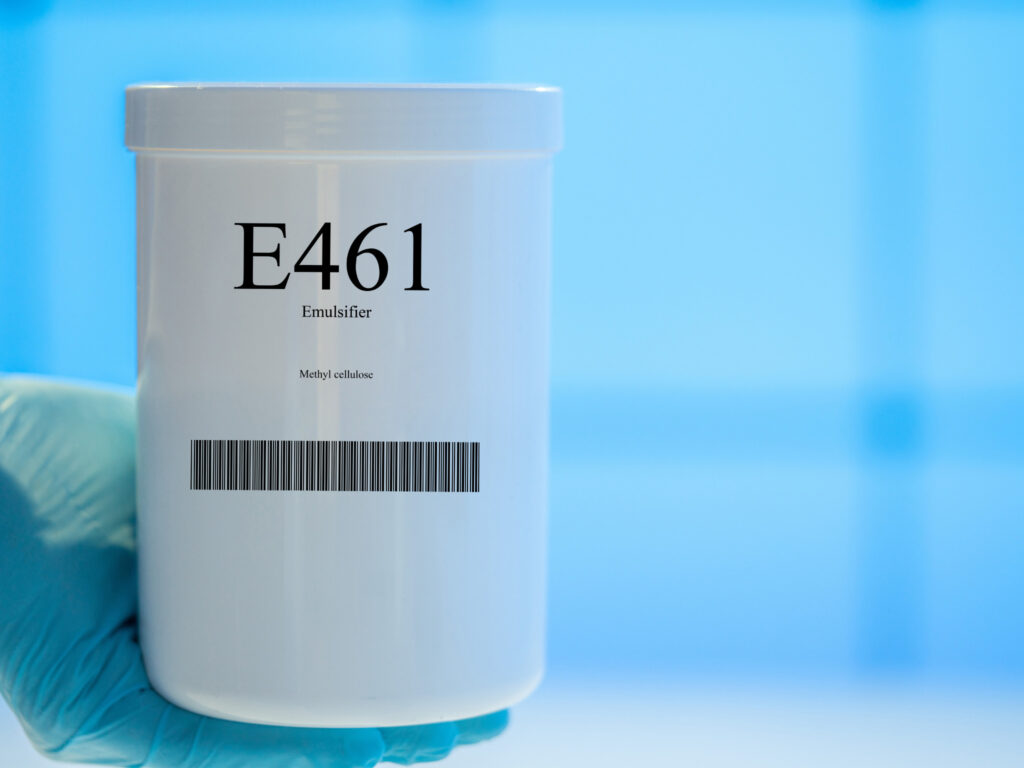
Methylcellulose is mainly a functional ingredient: the only real nutritional quality it has is fibre. Since this fibre content is insoluble and non-fermentable, it doesn’t lead to any bloating or gas. It isn’t digestible since human bodies lack cellulase, the enzyme needed to digest methylcellulose – so it passes through the body undigested. It does, however, contribute to water absorption in the intestines, which makes stools softer – this is why it’s an ingredient often used in laxatives.
The ingredient has garnered a bad reputation and is frequently cited as an element in the ‘overprocessed’ nature of plant-based meat. It was in the spotlight during a lawsuit against Beyond Meat last year, which questioned the ‘all-natural’ claims its burgers used to make (it no longer labels them this way).
Methylcellulose is approved by the EFSA in the EU, the FDA in the US and the Joint FAO/WHO Expert Committee on Food Additives, which rule it safe for human consumption, with no specified limits to its use. This is because no adverse effects have been observed when this is consumed in moderation.
When used as a laxative, consumers are advised to consume not more than three servings (6g) per day. In Beyond Meat and Impossible Foods’ formulations, methylcellulose forms less than 2% of the total weight of their burger patties (2g).
Startups making methylcellulose alternatives
As the focus on cleaner labels increases, the plant-based meat industry is looking for ways to replace methylcellulose to appeal to more consumers with shorter, more ‘natural’ and unprocessed labels. Some startups are providing solutions.
Fiberstar
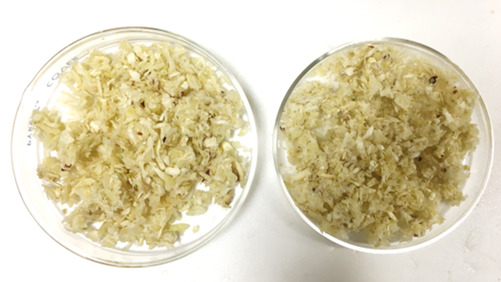
US company FIberstar is championing citrus fibre as an ideal base for replacing methylcellulose. Its Citri-Fi ingredient can replace elements like phosphates, carrageenan, titanium and glycerides. But when mixed with agar agar, native starch and psyllium husk, it “creates a texture that simulates real animal meat and produces a burst of juiciness and sizzle during cooking”, as the company told FoodNavigator.
It added: “This allows products like burger patties to be cooked at a high temperature without falling apart. During the cooking process, water and fat release to simulate the texture and create a burst of juiciness and sizzle which is convincing to quasi-carnivores.”
Meala
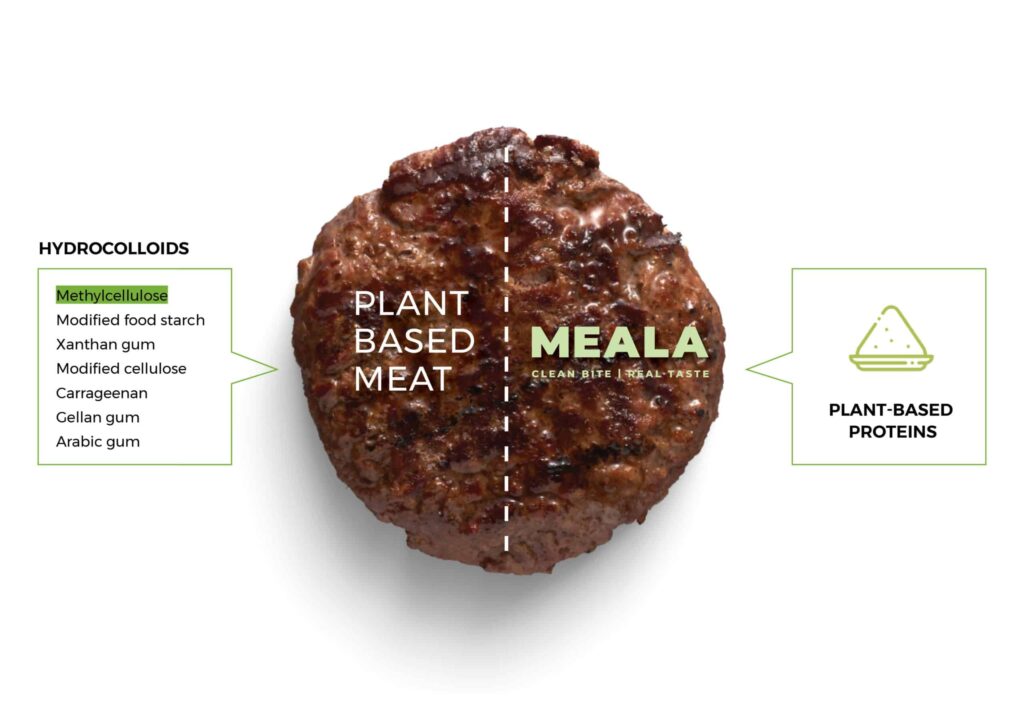
Israeli food tech startup Meala has developed a proprietary platform that creates functionally activated proteins that can replace methylcellulose in a 1:1 ratio, as well as other gums for binding and gelling. Part of The Kitchen FoodTech Hub‘s portfolio, Meala secured $1.9M in funding earlier this year.
It says its powdered ingredient will appear as a protein on product labels and can improve the texture of meat alternatives. “Our vision is for plant-based alternatives to sport a similar short list of simple, recognizable ‘home kitchen’ ingredients while delivering the same full-bodied flavour and texture of real meat,” its co-founder Hadar Razmovich says.
Eggmented Reality
Another Isreal-based startup, Eggmented Reality taps into precision fermentation to develop functional proteins that have gelling, binding, foaming or stretching properties. Its first product is an alternative to eggs and methylcellulose. The company, which has raised $1.2M in funding, has partnered with local food giant Tnuva – which invested in the startup through the Fresh Start food tech incubator – on a joint development agreement.
“Precision fermentation is expensive, so we are pursuing superior functionality so formulators can use less of an ingredient to achieve functional parity. We’re able to use 40-50% less of our protein to achieve the same gelation capability that commercial ovalbumin or egg white powder can deliver,” co-founder Jonathan Rathauser told AFN. “Eggmented represents the next generation of precision fermentation companies that really focuses on unit economics and functionality.”
Plantible Foods
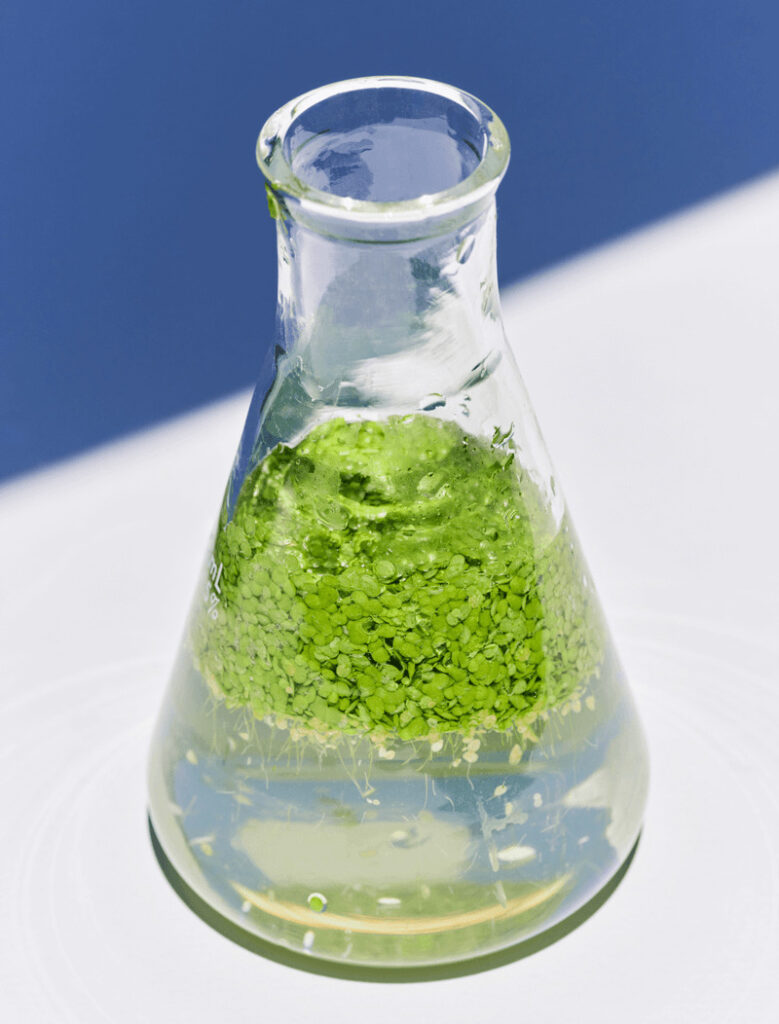
Duckweed (also called lemna) is gaining popularity for its high protein and omega-3 fatty acid content and pedigree as a climate-friendly superfood. One company is taking things a step further: Califonia-based Plantible Foods, which raised $21.5M in Series A funding in 2021 to scale and launch its nutrient-dense Rubi Protein, has patterned with ingredients company ICL Food Specialties to develop a clean-label methylcellulose alternative.
The new solution, called ROVITARIS Binding Solution, outperforms methylcellulose “by a mile both texturally and nutritionally”, according to Plantible chief commercial officer Morgan Keim, who told AFN that the ingredient will “render methylcellulose obsolete”. The companies plan to do initial consumer trials in Q1 2024, and commercialise later in the year.
Revyve
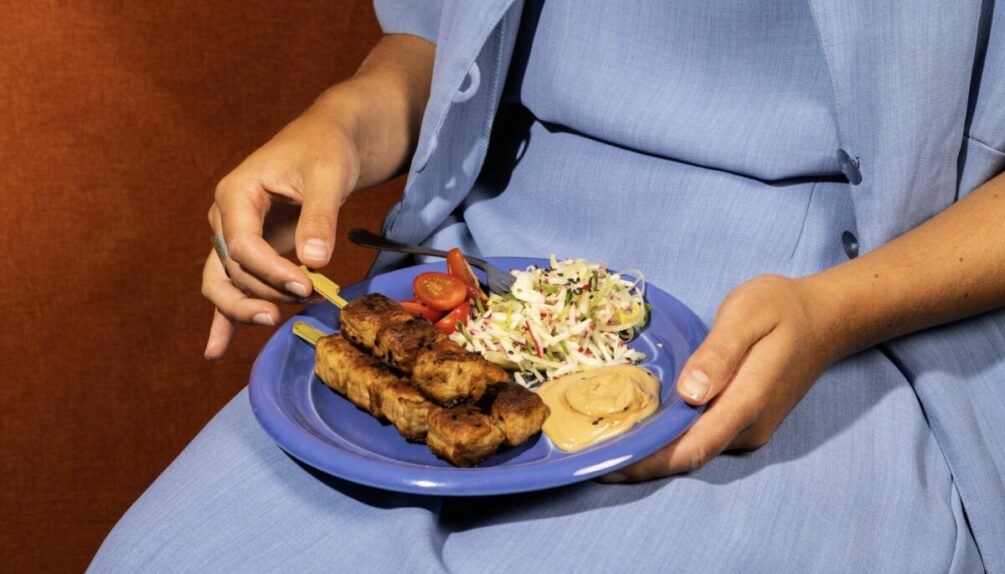
Dutch startup Revyve, which makes functional ingredients from “circularly sourced” microbial biomass like brewer’s yeast, has also developed an alternative to methylcellulose. It uses natural texturising solutions to extract protein and fibre from brewer’s yeast to “E-numbers and animal ingredients”.
Having raised €8M in funding, it is currently building a plant with a 300-ton capacity, which is slated to be operational in 2024. Its ingredients can be used in applications like plant-based meat, fried snacks, pasta, sauces and bakery products – all common foods that require binders like egg whites or methylcellulose.
This article was updated to include information about Revyve and common applications for methylcellulose.

